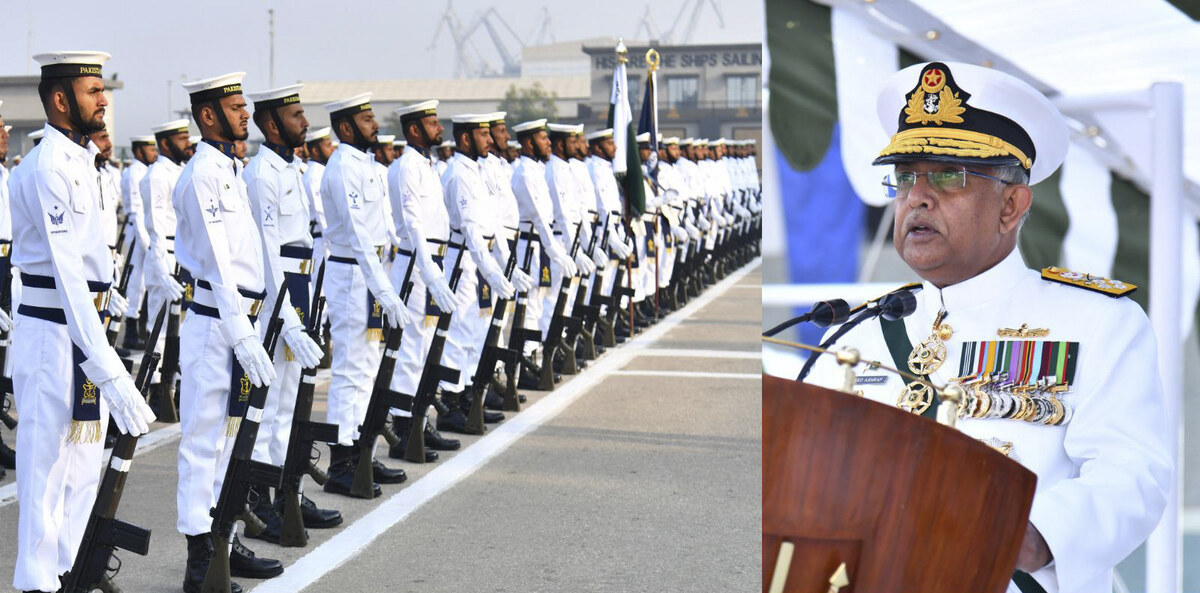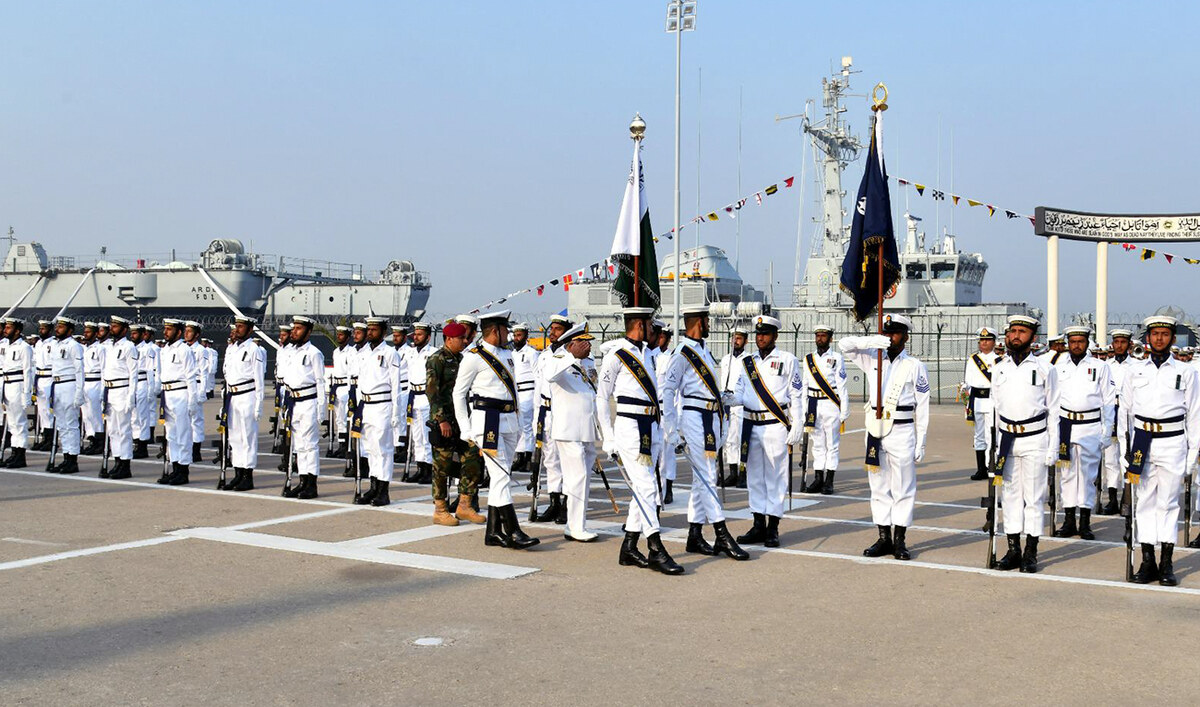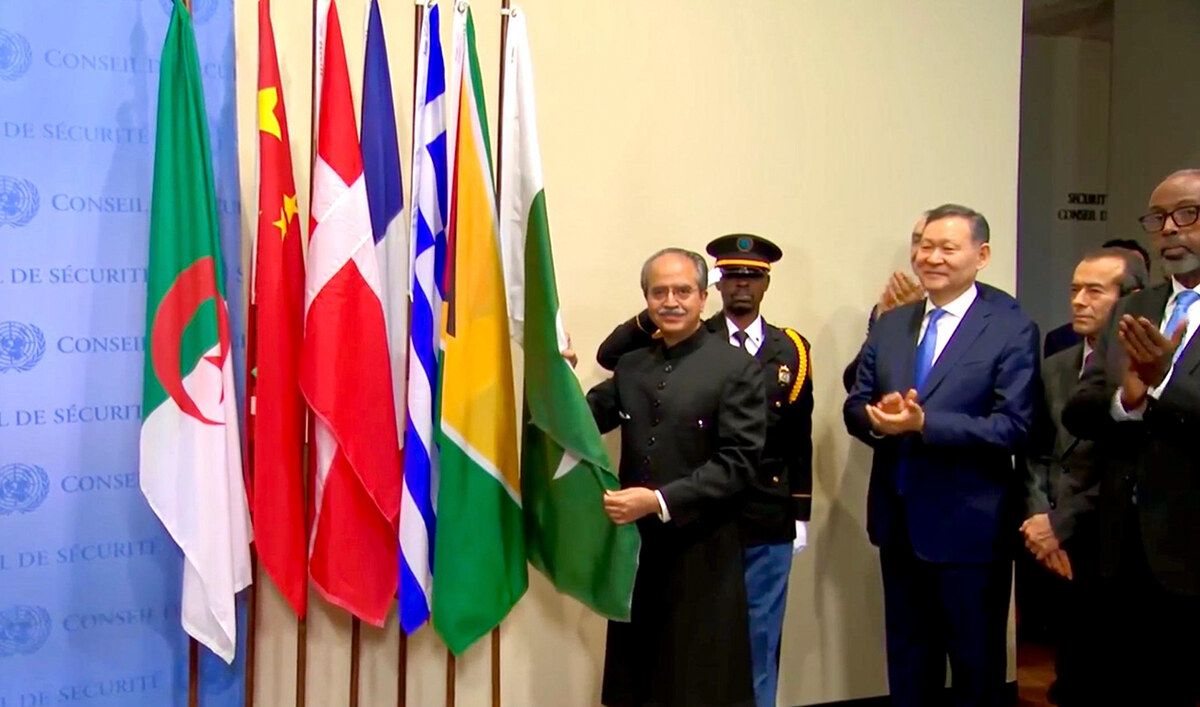KARACHI: Representatives of the ruling Pakistan Tehreek-e-Insaf (PTI) and the opposition Pakistan People’s Party (PPP) and Muttahida Qaumi Movement-Pakistan (MQM-P) have met to resolve some of the issues marring governance in Karachi, a minister confirmed to Arab News on Sunday, as the country's megapolis is struggling to cope with heavy monsoon rains which have overwhelmed its infrastructure and killed dozens of people since July.
The three parties are the main stakeholders in the capital of Sindh province. In Karachi's complex division of power, the PTI has a majority from its constituencies in the provincial assembly. The assembly itself, however, is dominated by PPP, which also rules the province. MQM-P, meanwhile, runs the Karachi city government. The city of over 15 million people has for years been facing various municipal problems, which experts say have roots in its complicated governance system.
"A meeting of the three parties was held in Islamabad on Wednesday and a follow up huddle almost with similar participation was held in Karachi on Saturday," Syed Aminul Haque, the federal minister for information technology and telecommunication, told Arab News.
"The issues like K-IV water project, lifting of trash, cleanliness of the drains, roads and local governments are expected to be resolved,” the MQM-P politician said. "We are hopeful that this initiative will help resolve the issues of Karachi."
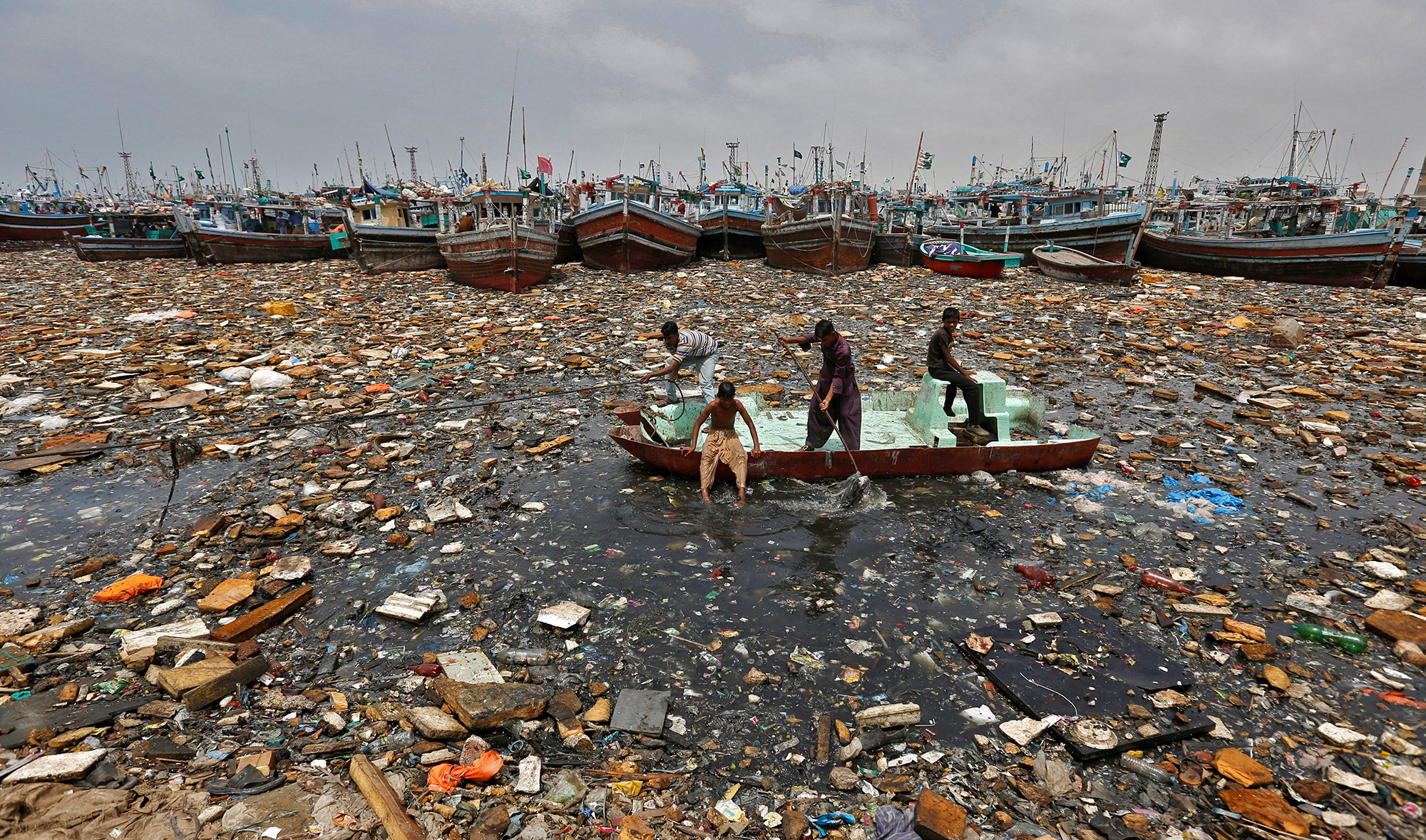
Boys aboard an abandoned boat collect recyclable items through polluted waters in front of fishing boats at Fish Harbor in Karachi on Aug. 17, 2016. (REUTERS/File)
The K-IV project he referred to is a mega canal project to supply the city with clean water. Initiated almost two decades ago, it still remains far from completion.
After last month's havoc, with main roads submerged, sewage spewing into homes, and power cuts lasting for hours, Karachi authorities have been facing increased criticism for maladministration.
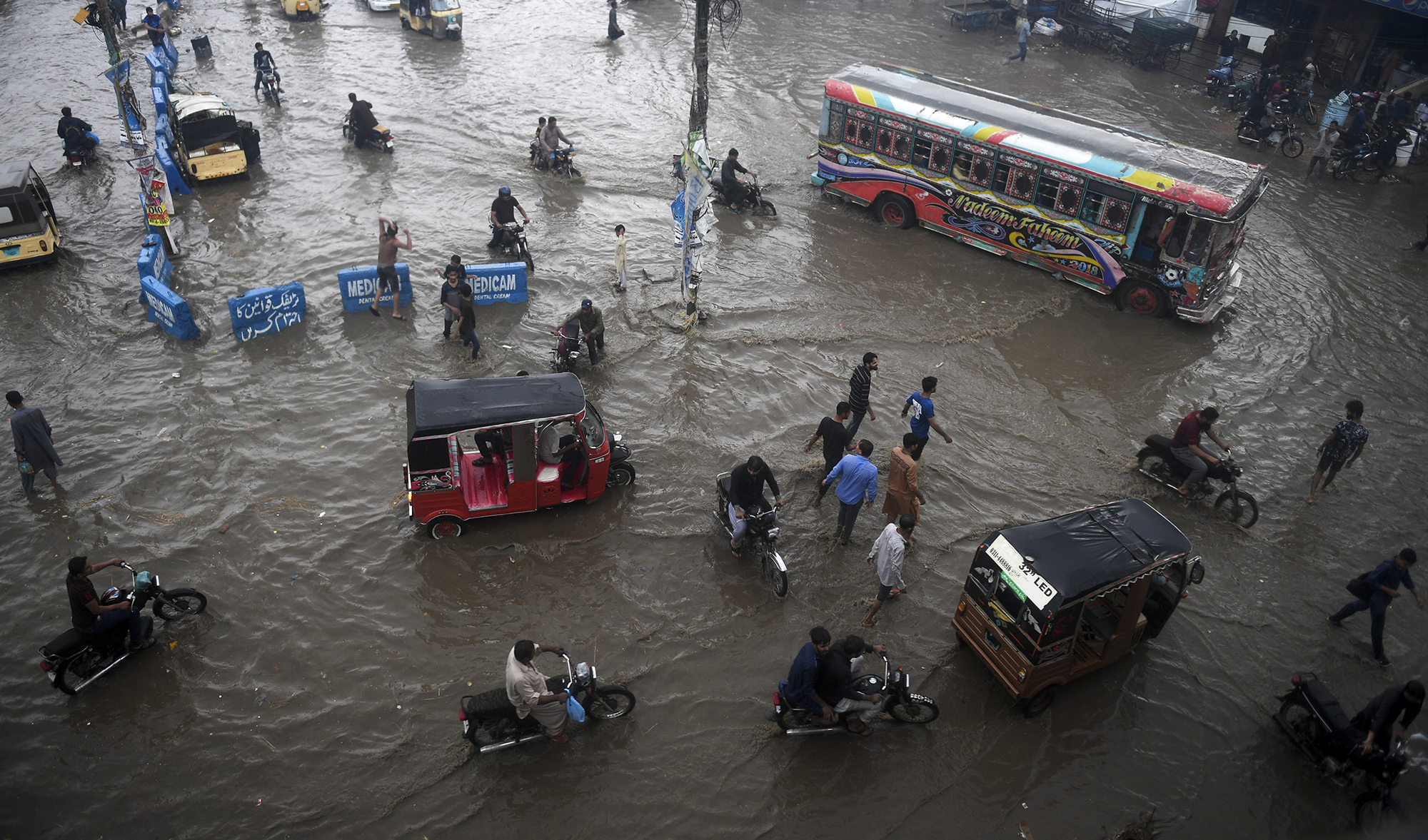
Commuters make their way along a flooded street after heavy monsoon rains in Pakistan's port city of Karachi on Aug. 7, 2020. (AFP/File)
While the recent meetings were a first for the three feuding parties, political analysts are skeptical about their outcome, as no governance improvement is likely to happen until they reach a broader agreement on local governance.
"There is no agreement on local governments," Mazhar Abbas, a senior political analyst, told Arab News. "This arrangement with the stakeholders can resolve the civic issues for time being, but for it to be on a permanent basis, the governance problem needs to be addressed."







